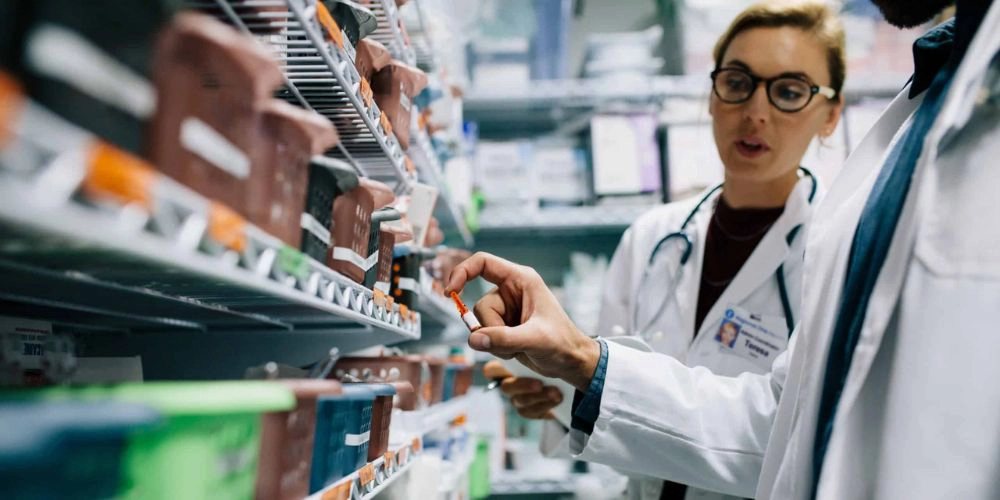Taking prescription medications as instructed is key to managing chronic and acute illnesses. But how do you know you’re using those medications safely? As a pharmacist, I encourage patients to ask me and their provider specific questions or concerns, but there are general rules to follow.
Should I take my medicine at the same time every day?
You usually have a little wiggle room. Staying consistent is ideal, but being off by an hour or two typically won’t make much difference.
Your pharmacist and provider will tell you if your medication requires a precise schedule. For example, some thyroid medications must be taken before breakfast.
Should I take my medicine with water?
That’s almost always the best choice. Most medications were designed and studied when taken with water.
Water won’t change how the medication breaks down in the stomach or how it’s absorbed, but soda, coffee, and other beverages might have adverse interactions.
If you occasionally take it with soda or coffee, that’s okay, but water is best unless your provider or pharmacist specifically says otherwise.
Can I take medicine right before bed?
Pills can get stuck in your esophagus if you lie down and don’t let gravity do its work. That can cause erosion.
Give yourself at least 30 minutes between swallowing a pill and lying down.
If I take multiple medications, can I take them all at once?
It’s usually fine, but ask your pharmacist about reasons not to, like adverse reactions between drugs.
That’s why I recommend getting your medications from one pharmacy.
If you see several doctors for different conditions, they may not be aware of all your medications — but your pharmacist is.
What is the best way to dispose of medications?
If you have easy access to a pharmacy, look for take-back or disposal programs.
If not, put the medication in a gallon-size jug, fill the rest with coffee grounds or cat litter, and then place it in the trash.
The idea is to make it so no animal, child, or adult is tempted to consume the medication.
What if I can’t afford my medication?
If your insurance doesn’t cover your medication or it’s too expensive, your pharmacist can help find another medication that works the same and costs less.
We can also find manufacturers’ programs to help cover certain medications and can identify patients who currently don’t have insurance but may qualify for insurance.
Should I stop taking my medication if it causes side effects?
If they’re minor, probably not. Talk to your pharmacist or provider so we can help you alleviate those issues.
Remember, the condition the medication treats is typically more serious than the side effects, so it’s important to keep taking your prescription.
LEARN MORE!
Getting to know your pharmacist can help you take control of your health. It’s important to understand your medications and why you should take them, and I encourage patients to talk to us about questions or concerns.
Learn more about Regional One Health Outpatient Pharmacy’s expert, convenient services at Regionalonehealth.org/outpatient-pharmacy.
Justin Griner, PharmD, MBA, BCPS, is an emergency department clinical pharmacist.
By Justin Griner, PharmD, MBA, BCPS







